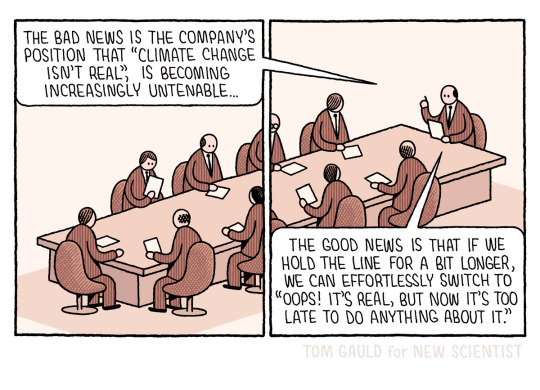#Compliance ethics
Explore tagged Tumblr posts
Text
Key Trends Shaping the Future of Corporate Compliance
Corporate compliance functions are entering a new era of rapid transformation, driven by technological advances, regulatory shifts and stakeholder pressures surrounding sustainability. By understanding critical developments in compliance operating models, risk management approaches and oversight frameworks, leaders can proactively position their organizations for long-term success.
Digitization to Enable “Compliance by Design”

Automation through robotic process automation (RPA), artificial intelligence and advanced analytics is empowering next-generation compliance. Machine learning facilitates real-time audits, gathering intelligence across transactions, communications and ecosystem signals to identify regulatory exposure. Self-updating compliance manuals tuned to latest ordinance shifts are on the horizon. The end vision is embedding compliance through system design across operations.
Focus Expanding Beyond Narrow Regulations
With intensifying scrutiny by investors, employees and society on ethical conduct, compliance roles are ballooning beyond narrowly meeting legal obligations alone to championing holistic integrity. Leading organizations are tying codes of conduct to societal value frameworks addressing diversity, sustainability and equitable impacts surrounding products and services. Data transparency, anti-corruption and human rights commitments are rising in priority.
Centralized Governance with Localized Operations
Global companies are moving towards centralized compliance governance under chief ethics/compliance officers and committees to align policies while localizing procedures. Geographic and divisional compliance heads are being empowered to tailor training programs using cultural nuances and localized languages to make integrity standards intuitively resonate across borders rather than appear disconnected edicts from headquarters.
Ultimately corporate compliance is maturing into a value creation function contributing towards trust and transparency with stakeholders rather than merely a check-the-box necessity. As guardians of integrity underpinning quality, fairness and reliability commitments made across supply chains and communities, compliance is becoming an ethical backbone driving capitalism’s next chapter.
#Corporate compliance trends#Compliance technology#Compliance automation#Compliance digitization#Compliance artificial intelligence#Compliance machine learning#Compliance analytics#Regulatory technology (RegTech)#Compliance audits#Compliance by design#Compliance scope expansion#Compliance ethics#Corporate social responsibility#ESG compliance#Sustainability compliance#Diversity and inclusion compliance#Human rights compliance#Anti-corruption compliance#Compliance governance#Chief Compliance Officer
1 note
·
View note
Text
"The re-election of Donald Trump to the presidency of the United States provided Meta [owner of Facebook, Instagram, Threads and such] with a glorious opportunity to pivot from futile co-operation with the EU to confrontation and coercion. If Meta could get the US government onside in its battles with the EU and other jurisdictions, then it would maximise its chances of success."
"In his Facebook announcement this week of changes to various policies, Zuckerberg candidly said that he wanted to 'work with President Trump to push back on governments around the world. They’re going after American companies and pushing to censor more. The US has the strongest constitutional protections for free expression in the world…The only way that we can push back on this global trend is with the support of the US government.'"
"For a corporation in the predicament of Meta this makes perfect commercial sense, even if it does violence to previously expressed sentiments. This is not an example of a company suddenly acting irrationally, but of a company rationally responding to one political development so as to facilitate defeating a regulatory challenge."
"And as the business models of most social media platforms require engagement above all — for without engagement you cannot have data mining and monetising and advertising — it really does not matter that the engagement is generated and amplified by misinformation and disinformation."
"The recent appointments at board level at Meta look like it is preparing for battle, and one in which its current commercial model requires it to defeat the aims of foreign governments. The new appointments make a lot of strategic sense."
"Nonetheless there is a fight ahead: over who shall regulate the social media platforms that in turn are influential in shaping (and contaminating) public discourse."
(Unfortunately behind a paywall: https://www.ft.com/content/917c9535-1cdb-4f6a-9a15-1a0c83663bfd )
#compliance in advance#meta#mark zuckerberg#zuckerberg#social media#regulation#countries#international#multinational#disinformation#misinformation#infosec#data ethics#commerce#state power#corruption#donald trump#trump#us politics#american politics#USpol#politics#political#EUpol#eu politics#BRpol#br politics#brazil#eu#european union
24 notes
·
View notes
Text
Once again raging about shitty research standards and the methodology and ethical decision-making of like, a significant majority of my peers. This is why I can never change my blog title, it's too accurate to my soul.
#look it's really just like. genuinely wild that everyone talks sooo much about how flawed academia is#and then people turn around and try to throw out the actual safeguards in place to even marginally address those flaws#because they consider them inconvenient and elitist gatekeeping#holy fuck jesus mary and joseph. sending everyone to ethics class#not BACK to ethics class cuz I don't think they attended the first time but yanno#do not pass go do not collect 200 dollars#also for the record I do not actually work in export controls I would hate that lmao#this is just about compliance in general
28 notes
·
View notes
Text
How DeepSeek AI Revolutionizes Data Analysis
1. Introduction: The Data Analysis Crisis and AI’s Role2. What Is DeepSeek AI?3. Key Features of DeepSeek AI for Data Analysis4. How DeepSeek AI Outperforms Traditional Tools5. Real-World Applications Across Industries6. Step-by-Step: Implementing DeepSeek AI in Your Workflow7. FAQs About DeepSeek AI8. Conclusion 1. Introduction: The Data Analysis Crisis and AI’s Role Businesses today generate…
#AI automation trends#AI data analysis#AI for finance#AI in healthcare#AI-driven business intelligence#big data solutions#business intelligence trends#data-driven decisions#DeepSeek AI#ethical AI#ethical AI compliance#Future of AI#generative AI tools#machine learning applications#predictive modeling 2024#real-time analytics#retail AI optimization
3 notes
·
View notes
Text
sped teaching classes so far are all like "it's incredibly important to have an empathetic, understanding, and flexible learning environment to affirm and uplift every students differences in a trauma informed and anti-ableist manner. Anyways here's how to conduct compliance based activities that will make your students pass for Normal™️"
#not super looking forward to the ABA course as an ABA disliker#i have a nuanced view of it but it evens out to a net negative#i understand the Why of why i need to know how to do ABA for like. legal and compliance reasons.#i just. dont think it aligns with the professional ethics put forth by the program!#its cognitively dissonant!#maybe I'll have a different opinion when i get to the course but. Im not excited#badger rants
3 notes
·
View notes
Text
i think the reason i put of writing hannigram is that my goal is to make an argument about the show in a literary sense. if my goal was just to write and distribute filthy cannibalistic pornography the world would be a better place for me and others
#hannigram#of course in writing this post i'm already thinking about the word “filthy” acting as a bridge between the aesthetic and the ethical#a connection which i think hannibal is canonically enamored with..#i'm striving too hard for meaning and canon compliance i fear
3 notes
·
View notes
Text
I work in teams with people at work and we have a few leads in the team (consulting, project management, analysis and reporting, survey and reporting platforms) and nothing fucks me off more than when I'm trying to delegate a problem to the person responsible for solving it and in response they try to give me advice for how I can solve it.... no buddy this is your problem to solve. I've already done part of your job by defining the problem you've got to solve. you can use your own brain to make decisions I promise it's not that scary.
#analysis and reporting more like nobody else wants to touch data with a bargepole even if it's literally their job#lead analyst... and lead platform analyst chaser and lead project manager wrangler and lead ethics and compliance reminderer#lead analyst like yeah you can lead a platform analyst to the qualtrics installation but you can't make them initiate testing#everyone can fuck off actually
2 notes
·
View notes
Text
Applied for 3 corporate jobs at Starbucks so…..maybe someone actually will hire me. Maybe.
#ethics and compliance investigations#which I’ve done#please hire me#I promise I was actually really good at my jobs
6 notes
·
View notes
Text
You Won't Believe What HR Consultants Can Do for Your Business
As a business owner or manager, you may be familiar with the myriad of employment laws and ethical standards that govern your company’s operations. However, with the constantly evolving legal landscape and increased public scrutiny, it can be challenging to keep up and ensure your business is staying compliant and ethical. This is where HR consultants come in. HR consultants are experts in…

View On WordPress
#business compliance#business ethics#compliance#compliance consulting#employment law#employment lawyers#employment regulations#ethical business practices#Ethical Standards#HR#HR Consultants#HR Management#HR Strategy#HR Support#human resources#labor laws#legal compliance#workplace compliance#workplace ethics#workplace rights#workplace rules
2 notes
·
View notes
Text
I promise it's not too late. I promise , I promise, I promise, so please don't stop trying. Big polluters (ExxonMobil is the easiest case study to use as a reaserch start point) actively benefit from when we give up.
This is called climate apathy. There is so much we can do, but the catch with hope is that you have to fight for it. Companies that gain money from the public's inaction will always try to enforce isolation and despair.
Anyway. Scientist here. We're not remotely done yet, and that is a threat :)

My latest cartoon for New Scientist
#ITS NOT TOO LATE ITS NOT ITS NOT#biting through exec tables in these meetings. crawling out of their vents to rip tear kill kill kill cast spell of FUCKETH YOU upon them#climate activist mode activated anyway SHAME ON THEM#rattling my cage door#i want nothing more than to be let loose in one of those meetings to scream. just. just fifteen minutes#let me tell them their gravestones are going to be painted red by their own descendants out of disgust#let me tell them their tactics and their compliance are going to be engraved in history#let me at them. just five minutes#i hope their red gravestones will know that the only ethical silence involved in all this will be that of the cashier selling red paint
48K notes
·
View notes
Text
Gamification in Compliance Training: A Game-Changer for Employee Engagement

Compliance training for employees has traditionally consisted of long, monotonous sessions that overwhelm staff with information. The result? Employees struggle to retain and apply the knowledge effectively. Companies have long searched for an efficient way to deliver compliance courses that not only educate but also engage learners.
HR compliance training, corporate compliance training, and safety and compliance training are integral to businesses across industries. Whether it’s ensuring compliance with labor laws, environmental regulations, or ethical business conduct, proper training is crucial for maintaining operational integrity.
The Rise of Microlearning in Compliance Training
Microlearning, a learning approach that delivers content in short, focused bursts, is transforming the way organizations implement training for compliance. By using microlearning tools for frontline staff, businesses can enhance engagement and increase the effectiveness of their compliance programs.
Microlearning compliance training provides a more flexible and employee-friendly approach to compliance education. Rather than forcing employees to sit through hours-long training sessions, organizations can deliver crucial information in quick, interactive formats, making it easier for employees to absorb and recall important compliance guidelines.
Benefits of Compliance Microlearning
Improved Knowledge Retention Compliance microlearning solutions are designed to reinforce critical concepts by breaking down complex regulations into manageable lessons. This ensures employees remember and apply compliance policies effectively.
Flexibility and Accessibility With a microlearning platform for frontline employees, training becomes accessible anytime, anywhere. Employees can engage with compliance training online via mobile devices, making learning convenient and reducing disruptions to work schedules.
Increased Engagement Traditional compliance and training programs often feel overwhelming, leading to disengaged employees. Microlearning integrates interactive elements such as quizzes, videos, and real-life scenarios to make compliance training engaging and impactful.
Time and Cost Efficiency Organizations save valuable time and resources by adopting corporate compliance microlearning. Since microlearning modules are concise and targeted, employees can complete them quickly, reducing the time spent away from their daily responsibilities.
Continuous Reinforcement Compliance is not a one-time event—it requires ongoing reinforcement. A microlearning platform allows organizations to deliver compliance safety training regularly, ensuring that employees stay updated on regulatory and compliance training requirements.
Key Areas of Compliance Training Transformed by Microlearning
HR Compliance Training
HR compliance courses cover essential topics such as workplace harassment, diversity and inclusion, and fair labor practices. Microlearning breaks these complex topics into engaging modules, making it easier for employees to understand and implement HR policies effectively.
Environmental Compliance Training
Environmental regulations are constantly evolving, requiring businesses to stay informed about sustainability practices and legal requirements. Environmental compliance training delivered through microlearning platforms ensures employees can quickly grasp regulatory changes and implement eco-friendly practices.
Safety and Compliance Training
Workplace safety is a top priority in industries such as manufacturing, healthcare, and construction. Safety compliance training through microlearning provides employees with real-world scenarios and quick refresher courses, helping them adhere to safety protocols and minimize workplace accidents.
Ethics and Compliance Training
Ethics training plays a crucial role in fostering a culture of integrity within organizations. Compliance microlearning offers interactive ethics and compliance training modules that reinforce corporate values and help employees navigate ethical dilemmas with confidence.
Annual Compliance Training
Compliance isn’t a one-time task; it’s an ongoing responsibility. Yearly compliance training ensures employees stay informed about evolving regulations. Microlearning makes it easier to deliver annual compliance training in engaging, manageable segments.
How LMS Training Enhances Microlearning Compliance Programs
A learning management system (LMS) plays a vital role in streamlining compliance training. An LMS training platform allows organizations to:
Automate compliance tracking: Ensuring employees complete required training within specified timelines.
Deliver personalized learning experiences: Tailoring training programs to individual roles and compliance needs.
Measure training effectiveness: Using data analytics to monitor employee progress and retention rates.
Ensure regulatory compliance: Maintaining accurate records to demonstrate compliance with industry regulations.
By integrating a microlearning platform with an LMS, companies can optimize compliance training for employees while ensuring regulatory adherence.
Implementing Compliance Microlearning Solutions in Your Organization
Transitioning to a microlearning-based compliance training program requires a strategic approach. Here’s how organizations can successfully implement a microlearning compliance training solution:
Assess Training Needs Identify key compliance areas that require training, such as HR compliance training, corporate compliance training, or safety compliance training.
Develop Engaging Microlearning Content Create interactive compliance courses that include videos, simulations, and quizzes to enhance engagement and retention.
Leverage a Microlearning Platform Choose a microlearning tool for frontline staff that allows easy access to training materials on mobile and desktop devices.
Monitor and Measure Training Impact Use an LMS training platform to track employee progress, assess comprehension, and identify areas for improvement.
Reinforce Learning Regularly Schedule compliance microlearning sessions periodically to ensure continuous learning and regulatory compliance.
#compliance training#compliance training online#compliance training for employees#compliance courses#hr compliance training#corporate compliance training#compliance officer training#hr compliance courses#environmental compliance training#staff compliance training#safety and compliance training#safety compliance training#annual compliance training#ethics and compliance training#training for compliance#regulatory and compliance training#compliance safety training#yearly compliance training#Compliance Microlearning#microlearning compliance training#corporate compliance microlearning#compliance microlearning solution#micro-learning platform for frontline employees#microlearning tool for frontline staff#microlearning platform#LmsTraining#training individual#on a job training#compliance and training
0 notes
Text
#AI Factory#AI Cost Optimize#Responsible AI#AI Security#AI in Security#AI Integration Services#AI Proof of Concept#AI Pilot Deployment#AI Production Solutions#AI Innovation Services#AI Implementation Strategy#AI Workflow Automation#AI Operational Efficiency#AI Business Growth Solutions#AI Compliance Services#AI Governance Tools#Ethical AI Implementation#AI Risk Management#AI Regulatory Compliance#AI Model Security#AI Data Privacy#AI Threat Detection#AI Vulnerability Assessment#AI proof of concept tools#End-to-end AI use case platform#AI solution architecture platform#AI POC for medical imaging#AI POC for demand forecasting#Generative AI in product design#AI in construction safety monitoring
0 notes
Text
AI Ethics in Accounting: Best Practices for Data Privacy and Compliance

Artificial Intelligence (AI) uplifts accounting by automating tasks and offering deeper financial insights.
However, this advancement brings ethical challenges, especially concerning data privacy and compliance.
Why is this important?
Client Trust: Clients rely on accountants to safeguard their sensitive financial information. Any breach can erode this trust.
Legal Compliance: Following data protection laws is important to avoid penalties and maintain professional integrity.
Best Practices for Ethical AI in Accounting:
Transparency: Ensure AI decision-making processes are understandable to clients and stakeholders.
Data Security: Implement robust encryption and regular security audits to protect sensitive information.
Bias Mitigation: Use diverse datasets and continuous testing to prevent discriminatory outcomes.
Accountability: Maintain detailed logs and assign clear responsibilities for AI operations.
Regulatory Compliance: Stay updated with local and international data regulations to ensure adherence.
By embracing these practices, accountants can leverage AI responsibly, maintaining client trust and upholding ethical standards.
For a deeper dive into AI ethics in accounting, read more here!
0 notes
Text

From raw materials to retail, CSR standards play a crucial role in building a sustainable and ethical supply chain. 🌍🚛 Ensure accountability, transparency, and social responsibility at every stage. Let’s create a better future together! 🌟
#Corporate Social Responsibility (CSR)#Ethical sourcing practices#Fair labor compliance#Sustainable supply chain strategies#Ethical business practices#Supply chain transparency#Eco-friendly production methods#fair labor practices
0 notes
Text
How to Build and Manage a Community-Centric Program Schedule for Your Community Radio Station
Creating a program schedule for your Community Radio Station (CRS) is like curating a reading list for a book club—it needs to be engaging, varied, and reflective of the interests of your members. For a CRS, your “members” are your community, and building a schedule that captures their attention and sustains their interest is key to success. A well-crafted program schedule doesn’t just ensure…
#Broadcasting Techniques#Call-In Shows#Community Contributions to Radio#Community Engagement#Community Feedback#Community Radio Content Calendar#Community Radio Engagement#Community Radio Programming#Community Radio Station#Community Radio Sustainability#Content Vetting#CRS India#CRS License India#CRS Program Schedule#Cultural Programming#Cultural Sensitivity in Radio#discover page#Diverse Demographics in CRS#Elderly Engagement in CRS#Ethical Broadcasting#featured#Flexibility in Scheduling#Fundraising for CRS#Host and Volunteer Training#Interactive Radio Shows#Legal Compliance in Radio#Live Radio Debates#Local Events Radio#mind scrolls#Mobile Reporting for CRS
0 notes
Text
How can organizations balance risk and reward when adopting Generative AI
Organizations can balance risk and reward when adopting Generative AI (GenAI) by implementing a strategic approach that emphasizes due diligence, ethical frameworks, and robust governance. Here are key strategies to achieve this balance:
#generative ai#risk management#ai governance#ethical ai#data security#compliance#ai strategy#innovation#ai ethics
0 notes